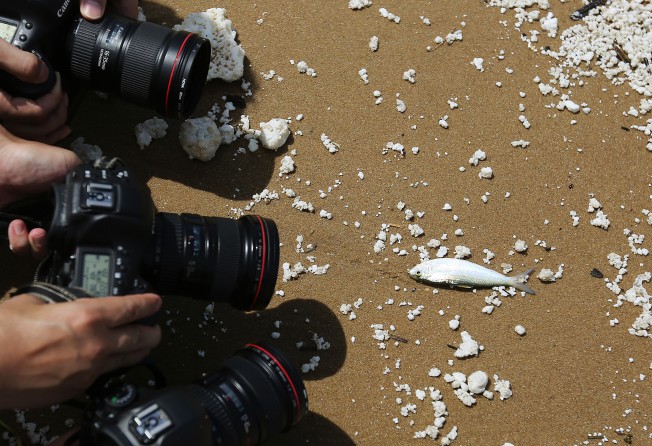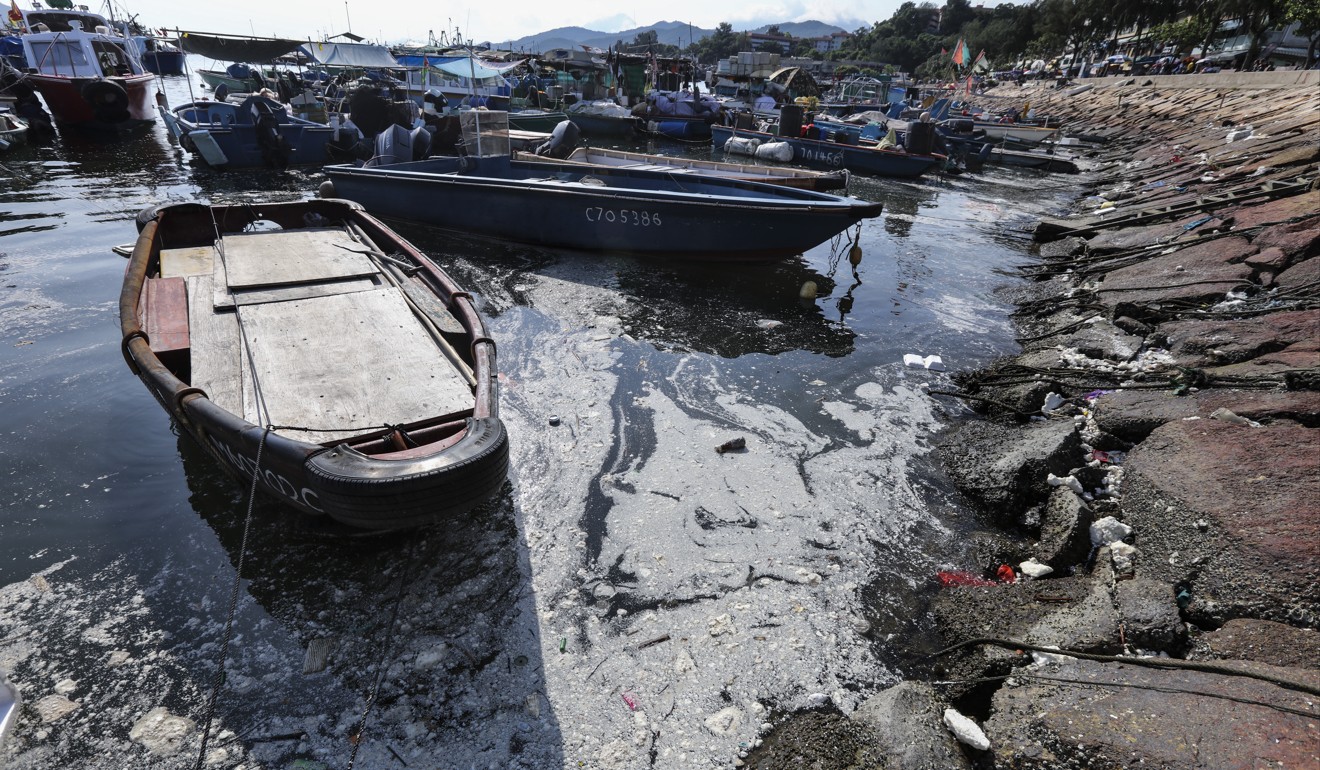Oil spill impact in Hong Kong brings call for quicker communication
Green group’s plea follows 200 tonnes of palm oil smothering city’s shorelines

The mainland, Hong Kong and Macau governments need to review their systems for telling each other about spills in nearby waters, taking into account currents to enable quicker responses, a green group has said.
That call came after Hong Kong’s shorelines were smothered by at least 200 tonnes of white, greasy and crystallised palm oil, leading to the closures of 13 beaches.
The grease was part of some 1,000 tonnes of palm oil leaked into the sea after two vessels – one of them carrying 9,000 tonnes of the oil – crashed in the Pearl River Delta on Thursday.
But the mainland government did not tell the city’s authorities of the spill until Saturday.
Ken Ching See-ho, head of the Eco-Resources and Education Centre, a green concern group, said early notification was vital for limiting the impact of such spills.
“As soon as we receive the notification, we can set up barriers along beaches to prevent the pollutants from being washed up on the beaches,” Ching said. “It is easier to clean the oil when it remains floating on the sea. But after it is washed up on beaches, it will melt and stick to the sand.”
Undersecretary for the Environment Tse Chin-wan said yesterday it took Guangdong authorities two days to confirm that the oil would spread into Hong Kong waters.
But Ching said spills were not uncommon in the area and the governments should study previous cases and ocean currents to establish a quicker prediction system.
“Previous experience has shown that pollutants [from the Pearl River estuary] will almost certainly affect Hong Kong due to the effect of summer currents,” he said.
Gary Stokes, of the Sea Shepherd Conservation Society, said the summer’s southwest winds would bring most marine rubbish floating down the estuary to Hong Kong’s southern shores.
And Ching said the government had been vague about how the Hong Kong and mainland authorities would handle such rubbish, urging the government to be more transparent about it.
The owners of the vessels involved in the crash were still unknown last night.

Marine pollution law expert Zhu Ling, of Polytechnic University, said that information would be important to decide which jurisdiction would handle damages claims.
Zhu said if the owners were mainland companies, the Hong Kong government could claim damages through the mainland legal system.